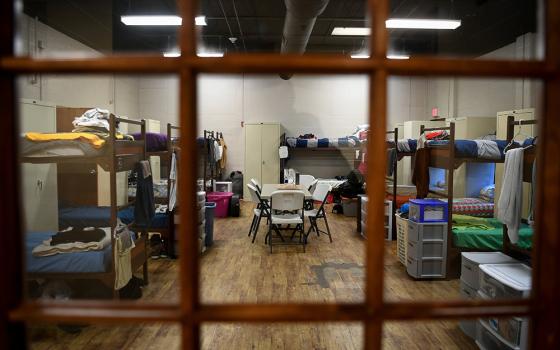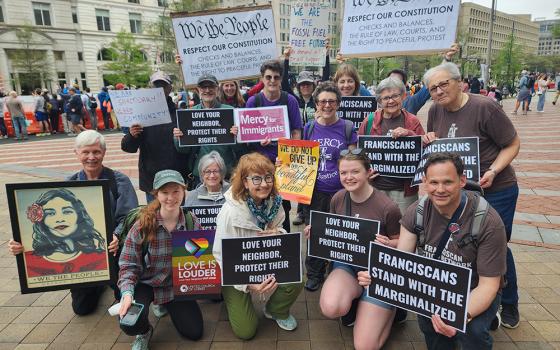On Sunday, for the first time in my life, I experienced fear in Bible study. A well-dressed stranger sat down at our table, and my mind went to a place I never thought it would at a time like that: "Is this man going to discuss Scripture with us for an hour and then pull out a gun and kill us?"
In post-9/11 New York, I often experienced fear in the subway, walking by tourist sites and going to top floors in high-rises. But church was always a safe refuge, emotionally and physically.
Now in the post-Charleston world, that one sure-thing refuge is gone. And, equally as sad, my fear was racially inspired because the attractive young man in a dark business suit was black, and we are a predominantly white congregation. The thought crossed my mind that he could have come to retaliate, harboring an eye-for-an-eye vengeance, choosing one of the country's most prominent Episcopal churches just as the shooter in Charleston targeted a black parish prominent in civil rights history.
Our church is welcoming of all people, and I am a greeter and an usher, so normally I would have been happy that he had joined us. And I was, after that initial thought passed. He made great contributions to our discussion, and I wasn't conscious of feeling any unease until he said he had to leave early and pushed away from the table. My insecurity returned as I thought, "Is this it? Is he going to shoot us?"
A week before, such outrageous thoughts would have been unfathomable. Now I know that even Bible studies aren't safe.
I'm aware that this luxury of thinking a house of worship is safe is a Christian thing, or at least an American Christian thing. Our Jewish sisters and brothers had security at services long before 9/11, and afterward, many, at least in New York, added metal detectors and outside barricades.
I don't expect my Bible study anxiety will persist in any way close to my post-9/11 fear when I was still having occasional nightmares a year later. I hope it won't persist at all. But once a certainty, such as safety in church, has been challenged, I don't know if we can ever go back. Now, thanks to the Charleston shooter, the Judeo-Christian mandate to welcome the stranger carries an element of risk, or at least an awareness of risk.
It's a risk, though, that we had better take. Not to would allow evil to triumph one more time. In Judaism, all strangers hold the possibility of being the Messiah, and in Christianity, we are told that by welcoming the stranger, we may be entertaining angels unaware. And we need those saviors and angels more than ever.
[Retta Blaney is an award-winning journalist and author of Working on the Inside: The Spiritual Life Through the Eyes of Actors.]



